#medieval grift
Text
real evaludaters remember Air Gives a Very Abbreviated Summary of Hermes Trismegistus and Alchemy In The Middle of Complaining About The Dating Sim Route Where You Kiss an Immortal Assassin Who Works For Literal Biblical Eve of Old Testament Fame
that being said i know way more about esoterica now so i'm. embarrassed. madelyn please let me redo my lecture on alchemy in the middle of our dating sim podcast i have better notes on obscure 18th-19th century wizard clubs now
#evaludate#listen i only knew about medieval german alchemy at the time i wasn't as well versed in the more modern grifts#guy who has now suffered through reading some of aleister crowley's horrendous fucking poetry. sickening shit for real.
11 notes
·
View notes
Text
Look, I don't know much about AI art. I don't know how it works, I don't know how the training works - I hate it mainly because of two reasons:
It is a grift, it attempts to lead to monetary earnings while using copyrighted and stolen art/creation of real people, while at the same time devaluing them and replacing their jobs
As someone who enjoys art, it feels souless. The heartbreaking feel I got when I was looking for medieval art and found AI art will always stay with me, the way I felt betrayed at finding fake lifeless stuff thrown at me instead of the history of humanity I was looking for
BUT
I had no idea it was just this bad?? I still had this image of it that AI art worked as a kind of "I have an idea, I describe it, and it gets created", and I had no idea it was more like "I try to describe an image in my mind, I gamble, and gamble, until I feel something that vaguely works".
I tried for curiosity and it was absolutely hilarious. HILARIOUS I TELL YOU. This is not the artistic process?? That comes from: having an idea in your mind, working around your own limitations. And sometimes your limitations are what makes good art because you change accordingly, and sometimes they disappear or change over time as well.
Now I 100% believe that AI artist just daydream something, then try to describe it, then spend hours clicking "roll", like some kind of slot-machine, until they find a piece of (stolen) art that vaguely resembles their idea - except that they always seem so happy, so much that I also have to believe that their initial idea was nothing more than vibes. Because how can you not be frustrated otherwise=
I TRIED IT AND IT WAS BAD -
Also it's homophobic
#I was like let's see... and i tried to make my OC#and i could not#and i tried to make them kiss#and one of them turned into a woman#multiple times#so i was of the assumption that AI art could be made but it was wrong because of the absence of human imput and because of the stealing of#but no... it just does not... exist... it is a SLOT MACHINE
24 notes
·
View notes
Text
i know I've talked about it before but trying to use a religious text as legitimacy for your state is still simultaneously the lamest and funniest grift to try and pull off. like literally someone can just say "i don't believe in that religion/text/interpretation" and suddenly it's just turned into a theological debate. like....religion, famous for its one complete agreed on truth.
like i disagree with saying "it's [year]" to imply like a linear progress over time, but also like that's literally medieval shit. should start saying netanyahu has the divine right of prime ministers.
18 notes
·
View notes
Text
Anonymous asked: You’re one of the smartest and well-grounded defenders of conservatism I have read here but I’m curious how you would defend the British monarchy. What would you say to those critics who think the coronation of King Charles III and the monarchy in general is just a waste of time as its rituals are out-dated and therefore has no symbolic value? How will you and your family be celebrating the coronation of King Charles III?
Thank you for your kind words, however undeserved. I’ve already started celebrating the coronation. I was in London earlier in the week seeing family and friends and I was just taking in the magnificent royal pageantry makeover of central London. One of my gentlemen’s club is in Pall Mall (it feels weird to say that as a woman) and just walking down there up to Fortnum & Mason and Hatchards bookstore in and around Piccadilly and Green Park gave me goosebumps. I only wish I was there longer but alas I had to get back to Paris; but at least I bought some food and tea stash from Fortnum & Mason to bring back to friends.
I’ll be properly celebrating the coronation by hosting a ’street party’ on our French vineyard with my cousins and inviting some of the British expats and French neighbours to celebrate with lots of fine wine and champers in full flow. Like millions of others, my immediate family are doing their own thing to celebrate the coronation. Overall, it should be a great day. And historic too. I have a spring in my step even if the very next day I have the weight of work on my shoulders as I rush to the airport the very next day to step back on the punishing corporate treadmill.
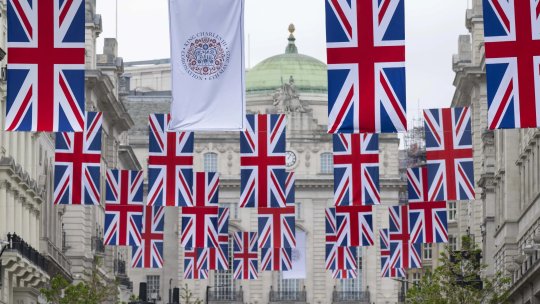
On the face of it, the British monarchy runs against the spirit of the times. Deference is dead, but royalty is built on a pantomime of archaic honourifics and frock-coated footmen. In an age of meritocracy, monarchy is rooted in the unjustifiable privilege of birth. Populism means that old elites are out, but the most conspicuous elite of all remains. Identity politics means that narratives are in, but the late queen kept her feelings under her collection of unfashionable hats. By rights, support for the crown should have crumbled under Elizabeth and especially under Charles. Instead, the monarchy has thrived. And it continues to thrive and thus maddening the bourgeois woke elites and perplexing race grifting decolonisation academics. And yet millions of Britons and many others around the world will tune in and celebrate the coronation of King Charles III. Unless your head is firmly embedded in the pages of the Guardian newspaper, poll after poll has shown the majority of Britons have supported the monarchy as an institution and the republican movement in the UK is a joke. Clearly the majority of Britons don’t see the monarchy as a waste of time or its rituals out-dated and nor having symbolic value? Why is that?
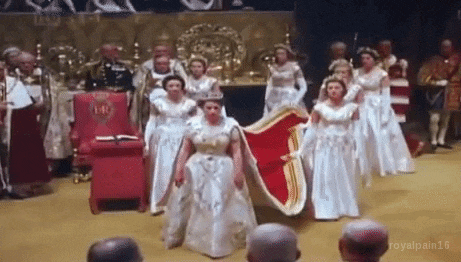
Most of the criticisms of monarchy are no longer valid today, if they were ever valid. These criticisms are usually some variation of two ideas. Firstly, the monarch may wield absolute power arbitrarily without any sort of check, thus ruling as a tyrant. However, in present era, most monarchies rule within some sort of constitutional or traditional framework which constrains and institutionalises their powers. Even prior to this, monarchs faced significant constraints from various groups including religious institutions, aristocracies, the wealthy, and even commoners. Customs, which always shape social interactions, also served to restrain. Even monarchies that were absolute in theory were almost always constrained in practice.
In Britain even the monarch was subject to the law from medieval times. As Sir Edward Coke put it in the famous 1610 Proclamations case, “the King hath no prerogative but that which the law of the land allows him”. If anyone doubts these issues are still relevant, the Supreme Court quoted these very words in its 2019 judgement on Boris Johnson’s prorogation of Parliament. And the pre-existing law referred to, that “common law of the land”, went back - both in legal myth and in the popular mind - to Anglo-Saxon times, the era of Athelstan and St Edward (whose crown King Charles will wear).

A second criticism is that even a good monarch may have an unworthy successor. However, today’s heirs are educated from birth for their future role and live in the full glare of the media their entire lives. More importantly, because they have literally been born to rule, they have constant, hands-on training on how to interact with people, politicians, and the media. This constrains bad behaviour, in theory. But it doesn’t always of course - just look at the antics of Prince Andrew and Prince Harry. Whatever your views of these people they are essentially peripheral figures to the central and singular importance of the monarch himself. The late Queen rarely put her foot wrong.
Even detractors of the monarchy had to admit the Queen herself conducted herself admirably. Christopher Hitchens, hardly a pro-monarchist but a staunch republican, was spot on when he shrewdly said, “the British monarchy doesn't depend entirely on glamour, as the long, long reign of Queen Elizabeth II continues to demonstrate. Her unflinching dutifulness and reliability have conferred something beyond charm upon the institution, associating it with stoicism and a certain integrity. Republicanism is infinitely more widespread than it was when she was first crowned, but it's very rare indeed to hear the Sovereign Lady herself being criticised, and even most anti-royalists hasten to express themselves admiringly where she is concerned.” Hitchens inadvertently highlighted an unseen truth about the longevity and relevance of the monarchy which is it has never been about the glamour or the gossip but about its symbolism which are deeply rooted in the ancient history of these lands.

Critics may decry nostalgia for monarchy but they are missing the wider point which is the monarchy is at the beating heart of modern constitutional democracies. As in previous centuries, monarchy will continue to show itself to be an important and beneficial political institution wherever it still survives.
Look around and you’ll see that constitutional monarchies are undoubtedly the most popular form of royal leadership in the modern era, making up close to 70% of all monarchies. This situation allows for democratically elected governments to rule the country, while the monarch performs ceremonial duties. Most monarchs are hereditary of course but I would argue in republics like the US and France for instance one has a ‘republican monarchy’. The presidency has all the symbolic trappings of a monarch and plays that unifying role for the nation. As an aside it’s interesting to note that the French president, Emmanuel Macron, technically serves as a Co-Prince of Andorra - a fact I enjoy making my good French republican friends squirm in discomfort. But France remains resolutely a republic despite many other European countries being a constitutional monarchy.
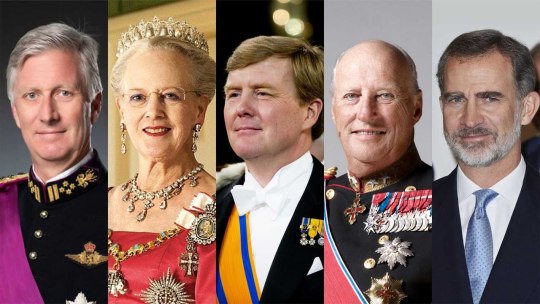
Monarchy has a long history in Europe, being the predominant form of government from the Middle Ages until the First World War. At the turn of the twentieth century every country in Europe was a monarchy with just three exceptions: France, Switzerland and San Marino. But by the start of the twenty-first century, most European countries had ceased to be monarchies, and three quarters of the member states of the European Union are now republics. That has led to a teleological assumption that in time most advanced democracies will become republics, as the highest form of democratic government.
But there still remains a stubborn group of countries in Western Europe which defy that assumption, and they include some of the most advanced democracies in the world. In the most recent Democracy Index compiled by the Economist Intelligence Unit, six out of the top ten democracies - and nine of the top 15 - in the world were monarchies. They include six European monarchies: Norway, Sweden, Denmark, the Netherlands, Luxembourg and the United Kingdom.
It remains a historical paradox. These monarchies have survived partly for geopolitical reasons, most of the other European monarchies having disappeared at the end of the First or Second World Wars. Their continuance has been accompanied by a steady diminution in their political power, which has shrunk almost to zero, and developing roles that support liberal democracy. What modern monarchies offer is non-partisan state headship set apart from the daily political struggle of executive government; the continuity of a family whose different generations attract the interest of all age groups; and disinterested support for civil society that is beyond the reach of partisan politics. These roles have evolved because monarchy depends ultimately on the support of the public, and is more accountable than people might think.
Understanding this paradox of an ancient hereditary institution surviving as a central part of modern democracies is a key part of understanding why monarchies persist and will continue to exist.
I would argue though that even within the modern constitutional monarchy, the British monarchy uniquely stands out from all the other European ones such as Norway, Sweden, Denmark, Belgium, Netherlands, and Spain.
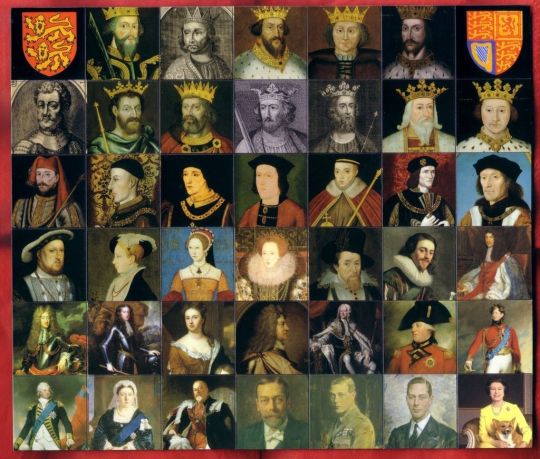
David Starkey, despite being curmudgeonly and provocative with his outsized remarks remains one of our finest medieval and royalist historians. He has always been particularly good at explaining the shifting tone of monarchical power in Britain. After the straightforward Anglo-Saxon model, English kings had to incorporate the Norman way of doing things, with its "chivalric virus"; we then see the Tudors appear with their imperialist vision, followed by the disastrous Stuart belief in the divine right of kings, which James I subscribed to intellectually, and which Charles I paid for with his head. After that we see Hanoverian mediocrity, followed by Victorian pomp, and Windsor flexibility – changing nationality and name as wars with Germany, their ancestral home, demanded.
From the beginning, Starkey argues, England’s monarchy has been unlike any other, divorced from imperial Roman traditions and based on an unspoken contract between king and people, and so reflecting a deep sense of patriotic exceptionalism. From Alfred, who effectively invented the idea of an English nation, to George III, who became the incarnation of bluff, beef-eating John Bull during the Napoleonic Wars, and on to George VI, the personification of quiet determination during Britain’s darkest and finest hours, successful kings have come to embody a wider spirit of national defiance. Perhaps that explains why, for all his faults, we remain fascinated with Henry VIII: he may have been a monster, but he was proudly, unapologetically, our monster. The Glorious Revolution of 1688 which really was one of this nation’s finest hours that did much to lay the seeds of our modern constitutional monarchy that we have today. Compared with the blood-soaked warrior kings of the past our recent monarchs have been personally colourless and politically irrelevant, except at key moments to unify a nation on its knees (against the imminent Nazi invasion during World War Two and the Blitz) and provide a point of continuity in the face of massive societal and economic change.
But does this history make Britain’s monarchy unique. Yes, it does. It’s not just the history but the rituals that define the monarchy in Britain that make it so unique today. Indeed far from being out-dated and empty of any symbolic value, the uniqueness of its rituals make the monarchy in Britain stand out because it’s precisely because of its Christian influenced rituals are embedded in the DNA of the monarchy tied to the history of these sceptred isles as Shakespeare put it.
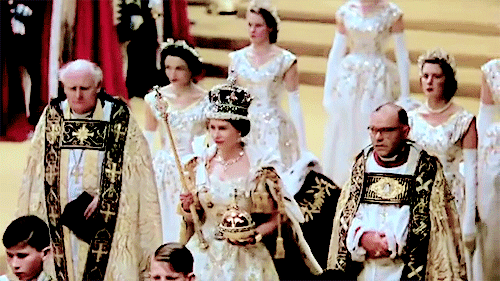
G.K. Chesterton wrote that “the opponents of ritual attack it on the ground that it becomes formal and hollow. So it does. But ritual only becomes formal and hollow where men are not sufficiently ritualistic.” What did he mean by that? A clue can be found in publication of The Black Book back in 1820 which was radical critique of the corruption and power of the English Establishment. It made this comment on royal ritual: “Pageantry and show, the parade of crowns and coronets, of gold keys, sticks, white wands and black rods; of ermine and lawn, maces and wigs, are ridiculous when men become enlightened, when they have learned that the real object of government is to confer the greatest happiness on the people at the least expense.” Forty years later, Lord Robert Cecil, the future third marquess of Salisbury, having watched Queen Victoria open parliament, wrote with scarcely more approval: “Some nations have a gift for ceremonial. No poverty of means or absence of splendour inhibits them from making any pageant in which they take part both real and impressive. Everybody falls naturally into his proper place, throws himself without effort into the spirit of the little drama he is enacting, and instinctively represses all appearance of constraint or distracted attention.”
As Sir David Cannadine, the great British historian, suggests, the elite's desire to temper the radical consequences of democracy was a crucial reason for their invention of so many royal rituals since the later nineteenth century. Indeed, for Cannadine, it is precisely the 'invention' and performance of royal rituals and Christian traditions, perfected at the end of the nineteenth and beginning of the twentieth century, which prevented the British monarchy from suffering the same fate as its Austrian, Prussian and German equivalents.
The Queen's coronation in 1953 was the first major international event to be broadcast on television, with an estimated 20.4 million viewers in the UK alone, 56% of the adult population. The coronation was the first media event seen by the majority of the population, and was for many their first experience of 'watching the box'. What people saw or were presented in the case of the British monarchy, were many references to its past by pointing out similarities between Elizabeth II and her famous predecessor Queen Victoria, by highlighting the longevity of rituals, or by implementing (seemingly old, but often invented) traditions in royal events like jubilees. In all of these cases, a diachronic genealogical link to the past is established in order to point to the institution's continuity, stability and anchorage in British history.
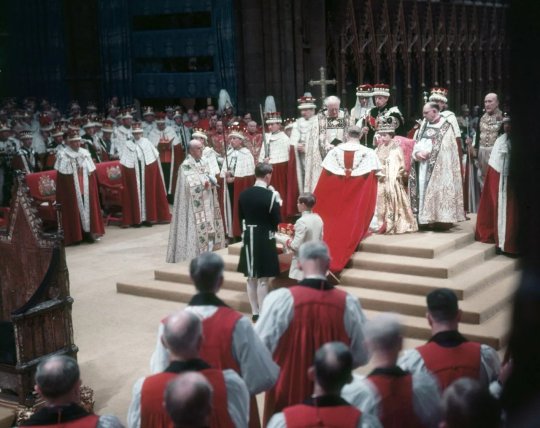
But Chesterton is onto something that has never really been talked about when we look what is behind the Christian symbology of rituals (real or invented).
The uncomfortable truth - for republicans and others of no Christian faith - is that Britain’s monarchy stands as the world’s only remaining state religious institution. The coronation is more than mainly a religious ceremony, as if that remaindered it for everyone not religious. It is a symbol among much else of the world’s oldest and only global narrative: God’s story. It goes all the way back to the crowning of Edgar by St. Dunstan in AD 973, drawing, it is said, an on even older Frankish ceremony. It takes place in Westminster Abbey, the national shrine. The oath is administered by the highest clergyman in the land. His office takes precedence even over the monarch himself. There is not just the formula “So help me God” repeated as does the U.S. president at the end of every secular statement; there is not simply an oath “upon my honour and integrity,” as in Turkey, or upon the honour of the nation, as in France.
The new queen in 1953 was asked, “Will you to the utmost of your power maintain the laws of God and the true profession of the gospel?” And she, and now as Charles will, pledged to do this, kneeling at the altar of the greatest temple in the land, hand upon Bible; “the most valuable thing this world affords,” the priest intones. And of which the priest then adds:
Here is wisdom. This is the royal law. These are the lively oracles of God.
Then, in the even more amazing rite of unction that stretches in one unbroken line from the anointing of Solomon by Zadok the priest and Nathan the prophet in the Hebrew Bible, the king is anointed with oil under a gold awning in a ceremony of the utmost holiness and away from the gaze of onlookers (it will not be televised). The archbishop hands him the symbols of his rule:
Receive this orb set under the cross, and remember that the whole world is subject to the power and empire of Christ our redeemer.
It is this that is the radioactive heart of Britain’s monarchy, and the secret of its strength. I think King Charles knows this. And so King Charles III will, I hope, defend faith in such a way that accounts for the universal and particular, all the while remaining committed to Christianity, the fabric of Britain’s history and heritage.
Both the monarchy and its rituals are together a protection against tyranny and a remedy for weakness. For, long forgotten by secular pundits, it models itself on the Christian belief that authority is what it is because it has been crucified; that only Christ the servant king is truly powerful, and because all are fallen, all can be restored only through him. The eternal Light that will outlive the rise and fall of worldly civilisations is just what the nations of the world need to hear.
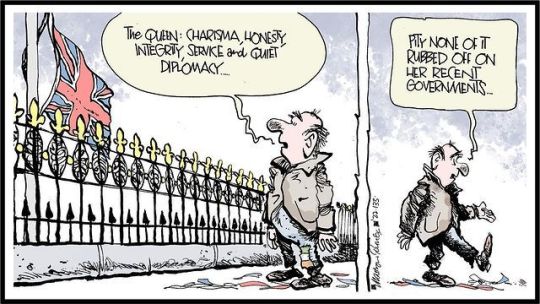
Coming back down to more earthly concerns, the British public look to the monarchy to represent continuity, stability and tradition, but also want it to be modern, to reflect modern values and be a focus for national identity, inclusive of creed, colour, and sexual orientation. The monarchy provides the poetry and the government provides the prose.
Writing in the 1860s, Walter Bagehot, The Economist’s greatest editor, noted that under Britain’s constitutional monarchy “A republic has insinuated itself beneath the folds of a monarchy.” The executive and legislative powers of government belonged to the cabinet and Parliament. The crown was the “dignified” part of the state, devoted to ceremony and myth-making. In an elitist age, Bagehot saw this as a disguise, a device to keep the masses happy while the select few got on with the job.
You do not need a monarchy to pull off the separation, obviously. Countries like Ireland rub along with a ceremonial president instead. He or she comes from the people and has, in theory, earned the honour. A dud or a rogue can be kicked out or prosecuted. To a degree, history lays down the choice - it would be comic to invent a monarchy from scratch.
However, constitutional monarchy has one advantage over figurehead presidencies that is the final reason behind our British monarchy’s surprising success: its mix of continuity and tradition, which even today is tinged with mystical vestiges of the healing royal touch. All political systems need to manage change and resolve conflicting interests peacefully and constructively. Systems that stagnate end up erupting; systems that race away leave large parts of society left behind and they erupt, too. Look at France, a country I live in now and I love, it had a revolution to overthrow a king only to end up with an emperor who made war on Europe, and left a country that has gone through as many republics as often I’ve changed my underwear in a working week.
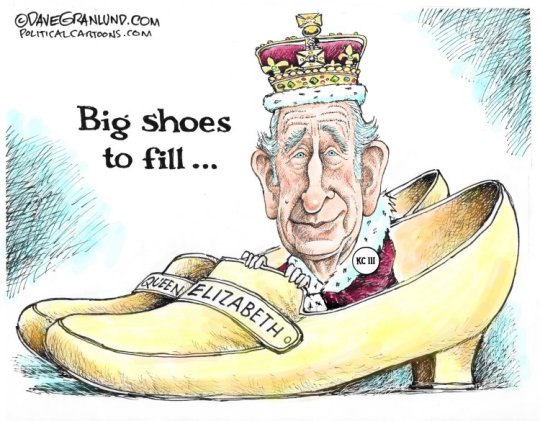
Under our late Queen Elizabeth II, Britain changed unrecognisably. Not only had it undergone social and technological change, like other Western democracies, but it was also eclipsed as a great power. More than once, most recently over Brexit, politics choked. During all this upheaval, the continuity that monarchy displays has been a moderating influence. George Orwell, no establishment stooge, called it an “escape-valve for dangerous emotions”, drawing patriotism away from politics, where love of country can rot into bigotry. Decaying empires are dangerous. Britain’s decline has been a lot less traumatic than it might have been.
Elizabeth’s sleight of hand was to renew the monarchy quietly all the while, and King Charles’s hardest task will be to renew it further. The prospect is daunting, but entirely possible. My money is on the monarchy.
God save the King!
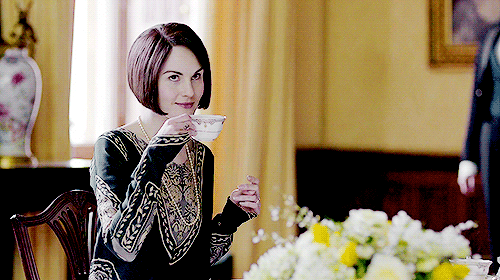
Thanks for your question.
#ask#question#british monarchy#monarchy#king charles III#queen elizabeth II#united kingdom#britain#royalty#nobility#history#tradition#custom#heritage#constitutional monarchy#europe#england#personal
58 notes
·
View notes
Text
Hank's wife's is NOT unSussexful she's simply the victim of unfortunate circumstances. by u/KarenDelaneyWalker
Hank's wife's is NOT unSussexful, she's simply the victim of unfortunate circumstances.
Our Saint is perfection personified. She's a heart-attack beautiful, whip smart duTchess who will modernize the BRF by creating a branch of the RF in the good ol' USA. She has been and is currently "in talks" to be a politician, a reality TV star, a global humanitarian, a celebrity friend magnet and the face of a major fashion house.None of these manifestations will come to pass, of course (except maybe the reality TV show), but it won't stop our gal from trying. Unfortunately, every time she tries to elevate her trash status in the eyes of the public, the universe smacks her down with a backhand.Obviously, none of these failed attempts were or are Hank's wife's fault. It's the fault of uncontrollable forces, whether it be the death of a beloved monarch, the media or simply jealous hoes. So let's clarify who is really to blame for Hank's wife's mishaps:Megxit = QEII's fault, for not wanting to "collaborate" with the GriftersUnable to establish an extension of the BRF in the US = BRF's fault, and COVID, for making it impossible to "hit the ground running"Not knowing how to curtsy = Medieval Times' fault, because apparently how they curtsy and an actual curtsy are not the same (and no one told her!)Disliked by most people = Jealous hoes, and Kate's fault (Duh!)South Park's World Wide Privacy Tour = British media's fault, because the Prince of Canada and his ILBW never said they wanted 'privah-SAY!'Lack of incoming funds = Hank's fault, as he is incapable of finding a decent paying grift job, and the public's fault, because how dare we not donate to fund their grift charityNo US Senate seat = MObama's faultArchetypes = Spotify's fault, for failing to provide the Grifters a "formal lay of the land to kick things off," and consumers' fault, because why wouldn't everyone pay to hear a grating voice drone on and on about nothing?"Near-castastrophic car chase" through the streets of NYC = dump truck's fault for getting in the way and slowing down the high-speed chaseIn summary, Hank's wife's failures have nothing to do with her. She's out here trying to live her best life, and things just inexplicably happen to her. Poor gal.
post link: https://ift.tt/siTK5hj
author: KarenDelaneyWalker
submitted: October 14, 2023 at 09:46PM via SaintMeghanMarkle on Reddit
#SaintMeghanMarkle#harry and meghan#meghan markle#prince harry#voetsek meghan#sussexes#markled#archewell#megxit#duke and duchess of sussex#duchess of sussex#duchess meghan#duke of sussex#harry and meghan smollett#walmart wallis#harkles#megain#spare by prince harry#fucking grifters#meghan and harry#Heart Of Invictus#Invictus Games#finding freedom#doria ragland#WAAAGH#KarenDelaneyWalker
8 notes
·
View notes
Text
if i ever turn to the dark side my grift is gonna be bringing back medieval medicine. try my new halitosis cure that BIG PHARMA doesn’t want you to know about! (bleeding. it’s all bleeding.)
14 notes
·
View notes
Text
it’s amazing to me how grift-y/low-quality/unintentionally hilarious the median ad is on right-wing talk radio stations
afaict the top ads rn are:
* BUY GOLD NOW!!!!! (complete with apocalyptic ramblings from the show host)
* navage, this bizarre “nose cleaning” thing that looks like a medieval torture advice and seems 100% unnecessary but goddamn do they get like 18 ad spots per hour
* some kind of “vitamin c boost” thing that will allegedly keep you from getting sick because i guess we’re all just living in the worst parts of linus pauling’s legacy huh
* some ex-marine begging you to keep your guns locked in a home safe, which like, ok fair i guess this is an ok place to target that message
* AARP PSAs lmao
* “please get a fucking covid vaccine/booster” PSAs, which usually play literally right after the talk show host has ranted about how covid vaccines are murdering babies or w/e
like goddamn what a demographic to be targeting
#bluetooth is busted in my car atm so uh. rando radio stations it is#kinda reminds me of the stark differences in targeted advertising you could observe on the Boston subway system#you'd ride the blue line and it's all like sketchy alternatives to Actually Seeing A Dentist#and then you get on the red line and it's like: don't know what to do with your phd which you obviously have? join our company!#(there was this one hilarious company in boston that was BLATANTLY the robot-y tech-y company you'd hang out at#while waiting for your significant other to finish *your* phd#because you'd already gotten yours and needed to kill time#before attempting the job market together#nostalgic sigh. boston subway was such an adventure)
5 notes
·
View notes
Text





You're Not Alone
✧───────── ✧
An art for @strikeyoko's project.
I give a sketch comic as a bonus scene and character background teaser. I hope the character blends well with the background as I try ways to make it as if it's an anime background for my animation.
I hope you enjoy the comic and apologies for the lack of content as I'm having final exams at the end of the month.
PS:
I forgot to add:
"The silent treatment! Always! When I face you as my enemy and now as your old friend. You just gave those cold stares. Good thing my fire softens it no?"
on the second page of the comic when Grift laughs!
≿━━━━༺◈༻━━━━≾
Credits:
◈ Crystaltale by @crystaltale-official
≿━━━━༺◈༻━━━━≾
#undertale au#crystaltale#aster#grift#crystaltale gaster#crystaltale grillby#art#medieval aster#medieval grift
44 notes
·
View notes
Text
hello yall :) the holy month of elul started last night, which is typically a time for contemplation, so since it is impossible for me to stop thinking about leverage, i decided to write an essay. hope anyone interested in reading it enjoys, and that it makes at least a little sense!! spoilers for leverage redemption
-----
Leverage, Judaism, and “Doing the Work”: An Essay for Elul
When it comes to Elul and the approaching High Holidays, Leverage might seem like an odd topic to meditate on.
The TNT crime drama that ran from 2008-2012, and which released a new season this summer following its renewal, centers on a group of found-family thieves who help the victims of corporations and oligarchs (sometimes based on real-world examples), using wacky heists and cons to bring down the rich and powerful. In one episode, the team’s clients want to reclaim their father’s prized Glimt piece that had been stolen in the Shoah and never returned, but aside from this and the throwaway lines and jokes standard for most mainstream television, there’s not a ton textually Jewish about Leverage. However, despite this, I have found that the show has strong resonance among Jewish fans, and lots of potential for analysis along Jewish themes. This tends to focus on one character in particular: the group’s brilliant, pop culture-savvy, and personable hacker, Alec Hardison, played by the phenomenally talented Aldis Hodge.
I can’t remember when or where I first encountered a reading of Hardison as Jewish, but not only is this a somewhat popular interpretation, it doesn’t feel like that much of a leap. In the show itself, Hardison has a couple of the aforementioned throwaway lines that potentially point to him being Jewish, even if they’re only in service of that moment’s grift. It’s hard to point to what exactly makes reading Hardison as Jewish feel so natural. My first guess is the easy way Hardison fits into the traditional paradigms of Jewish masculinity explored by scholars such as Daniel Boyarin (2). Most of the time, the hacker is not portrayed as athletic or physical; he is usually the foil to the team’s more physically-adept characters like fighter Eliot, or thief Parker. Indeed, Hardison’s strength is mental, expressed not only through his computer wizardry but his passions for science, technology, music, popular media, as well as his studious research into whatever scenario the group might come up against. In spite of his self-identification as a “geek,” Hardison is nevertheless confident, emotionally sensitive, and secure in his masculinity. I would argue he is representative of the traditional Jewish masculine ideal, originating in the rabbinic period and solidified in medieval Europe, of the dedicated and thoughtful scholar (3). Another reason for popular readings of Hardison as Jewish may be the desire for more representation of Jews of color. Although mainstream American Jewish institutions are beginning to recognize the incredible diversity of Jews in the United States (4), and popular figures such as Tiffany Haddish are amplifying the experiences of non-white Jews, it is still difficult to find Jews of color represented in popular media. For those eager to see this kind of representation, then, interpreting Hardison, a black man who places himself tangential to Jewishness, in this way is a tempting avenue.
Regardless, all of the above remains fan interpretation, and there was little in the text of the show that seriously tied Judaism into Hardison’s identity. At least, until we got this beautiful speech from Hardison in the very first episode of the renewed show, directed at the character of Harry Wilson, a former corporate lawyer looking to atone for the injustice he was partner to throughout his career:
“In the Jewish faith, repentance, redemption, is a process. You can’t make restitution and then promise to change. You have to change first. Do the work, Harry. Then and only then can you begin to ask for forgiveness. [...] So this… this isn’t the win. It’s the start, Harry.”
I was floored to hear this speech, and thrilled that it explained the reboot’s title, Leverage: Redemption. Although not mentioned by its Hebrew name, teshuvah forms the whole basis for the new season. Teshuvah is the concept of repentance or atonement for the sins one has committed. Stemming from the root shuv/shuva, it carries the literal sense of “return.” In a spiritual context, this usually means a return to G-d, of finding one’s way back to holiness and by extension good favor in the eyes of the Divine. But equally important is restoring one’s relationships with fellow humans by repairing any hurt one has caused over the past year. This is of special significance in the holy month of Elul, leading into Rosh haShanah, the Yamim Noraim, and Yom Kippur, but one can undertake a journey of redemption at any point in time. That teshuvah is a journey is a vital message for Harry to hear; one job, one reparative act isn’t enough to overturn years of being on the wrong side of justice, to his chagrin. As the season progresses, we get to watch his path of teshuvah unfold, with all its frustrations and consequences. Harry grows into his role as a fixer, not only someone who can find jobs and marks for the team, but fixes what he has broken or harmed.
So why was Hardison the one to make this speech?
I do maintain that it does provide a stronger textual basis for reading Hardison as Jewish by implication (though the brief on-screen explanation for why he knows about teshuvah, that his foster-parent Nana raised a multi-faith household, is important in its own merit, and meshes well with his character traits of empathy and understanding for diverse experiences). However, beyond this, Hardison isn’t exactly an archetypical model for teshuvah. In the original series, he was the youngest character of the main ensemble, a hacking prodigy in the start of his adult career, with few mistakes or slights against others under his belt. In one flashback we see that his possibly first crime was stealing from the Bank of Iceland to pay off his Nana’s medical bills, and that his other early hacking exploits were in the service of fulfilling personal desires, with only those who could afford to pay the bill as targets. Indeed, in the middle of his speech, Hardison points to Eliot, the character with the most violent and gritty past who views his work with the Leverage team as atonement, for a prime example of ongoing teshuvah. So while no one is perfect and everyone has a reason for doing teshuvah, this question of why Hardison is the one to give this series-defining speech inspired me to look at his character choices and behavior, and see how they resonate with a different but interrelated Jewish principle, that of tikkun olam.
Tikkun olam is literally translated as “repairing the world,” and can take many different forms, such as protecting the rights of vulnerable people in society, or giving tzedakah (5). In modern times, tikkun olam is often the rallying cry for Jewish social activists, particularly among environmentalists for whom literally restoring the health of the natural world is the key goal. Teshuvah and tikkun olam are intertwined (the former is the latter performed at an interpersonal level) and both hold a sense of fixing or repairing, but tikkun olam really revolves around a person feeling called to address an injustice that they may have not had a personal hand in creating. Hardison’s sense of a universal scale of justice which he has the power to help right on a global level and his newfound drive to do humanitarian work, picked up sometime after the end of the original series, make tikkun olam a central value for his character. This is why we get this nice bit of dialogue from Eliot to Hardison in the second episode of the reboot, when the latter’s outside efforts to organize international aid start distracting him from his work with the team: “Is [humanitarian work] a side gig? In our line of work, you’re one of the best. But in that line of work… you’re the only one, man.” The character who most exemplifies teshuvah reminds Hardison of his amazing ability to effect change for the better on a huge stage, to do some effective tikkun olam. It’s this acknowledgement of where Hardison can do the most good that prompts the character’s absence for the remainder of the episodes released thus far, turning his side gig into his main gig.
With this in mind, it will be interesting to see where Hardison’s arc for this season goes. Separated from the rest of the team, the hacker still has remarkable power to change the world, because it is, after all, the “age of the geek.” However, he is still one person. For all that both teshuvah and tikkun olam are individual responsibilities and require individual decision-making and effort, the latter especially relies on collective work to actually make things happen. Hardison leaving is better than trying to do humanitarian work and Leverage at the same time, but there’s only so long he can be the “only one” in the field before burning out. I’m reminded of one of the most famous (for good reason) maxims in Judaism:
It is not your duty to finish the work, but neither are you free to neglect it. (6)
Elul is traditionally a time for introspection and heeding the calls to repentance. After a year where it’s never been easier to feel powerless and drained by everything going on around us, I think it’s worth taking the time to examine what kind of work we are capable of in our own lives. Maybe it’s fixing the very recent and tangible hurts we’ve left behind, like Harry. Maybe it’s the little changes for the better that we make every day, motivated by our sense of responsibility, like Eliot. And maybe it’s the grueling challenge of major social change, like Hardison. And if any of this work gets too much, who can we fall back on for support and healing? Determining what needs repair, working on our own scale and where our efforts are most helpful, and thereby contributing to justice in realistic ways means that we can start the new year fresh, having contemplated in holiday fashion how we can be better agents in the world.
Shana tovah u’metukah and ketivah tovah to all (7), and may the work we do in the coming year be for good!
------
(1) Disclaimer: everybody’s fandom experiences are different, and this is just what I’ve picked up on in my short time watching and enjoying this show with others.
(2) See, for example, the introduction and first chapter of Boyarin’s book Unheroic Conduct: The Rise of Heterosexuality and the Invention of the Jewish Man (I especially recommend at least this portion if you are interested in queer theory and Judaic studies). There he explores the development of Jewish masculinity in direct opposition to Christian masculine standards.
(3) I might even go so far as to place Hardison well within the Jewish masculine ideal of Edelkayt, gentle and studious nobility (although I would hesitate to call him timid, another trait associated with Edelkayt). Boyarin explains that this scholarly, non-athletic model of man did not carry negative associations in the historical Jewish mindset, but was rather the height of attractiveness (Boyarin, 2, 51).
(4) Jews of color make up 20% of American Jews, according to statistics from Be’chol Lashon, and this number is projected to increase as American demographics continue to change: https://globaljews.org/about/mission/.
(5) Tzedakah is commonly known as righteous charity. According to traditional authority Maimonides, it should be given anonymously and without embarrassment to the person in need, generous, and designed to help the recipient become self-sufficient.
(6) Rabbi Tarfon, Pirkei Avot, 2:16
(7) “A good and sweet year” and “a good inscription [in the Book of Life]”
#leverage#miko speaks#jewish stuff#jumblr#leverage redemption#spoilers#lr spoilers#leverage redemption spoilers#written for a non leverage audience because i want my rabbi to read it alskdjflaksdjf#elul
177 notes
·
View notes
Text
AJAHAGAHSHAGSGAG WAIT WAIT it's time for some super niche interest references here but like historical fantasy au
Robin Hood & his Merry Men Nate & Leverage, that's a given.
Which makes Maid Marian Sophie but she's not ACTUALLY even royal, she's playing a long con.
Guy of Gisborne Quinn, who starts out working against them but is slowly brought to their side.
Sheriff of Nottingham Sterling, trying to enforce the law regardless of who it hurts and always looking to get ahead
Moreau in the Prince John role, just for the vibe of being at the top of the ladder and impossible to touch until Nate & crew start interfering enough in this one little province that he comes down to see what the FUCK is going
Merry Men!Eliot reveal that he used to be Moreau's favored crown guards after working his way up in military ranks. Was of common birth but was always told if he did well enough, did was what asked of him, showed unwavering loyalty, Moreau would make him a knight, until he realized the things he'd done for Moreau would never fall in line with the knights code and any knighthood he would actually en granted by the man would be a Lie - legally official or not, Eliot's hands weren't clean enough to ever truly be a knight, so he gave up that dream and fell further until The Worst Thing He Ever Did. And which point he ran off and becoming a bounty hunter then a criminal so on so forth we know the story.
Merry Man!Hardison as a Da Vinci style engineer, coming up with complicated builds using simple materials to make CRAZY "tech" for the crew (medieval fantasy equivalent of compound bows, thief rigging, high intensity binocular/scope lenses, etc) and also a little wizardry magic because why not .
Merry Man!Parker is... honestly just Parker, but they DO utilize her ability to grift as a young boy just as well as she can a noble lady a lot more because every associates theif/merry Man Parker as... well, a man, so she gets basically a free pass to wander around enemy territory when dressed as a woman.
22 notes
·
View notes
Text
So I've been rewatching The Librarians
Coming off my Leverage binge and devouring Leverage: Redemption, I decided to let Dean Devlin and John Rogers guide my next choice, and get caught up on The Librarians. I had watched the first two seasons, enjoyed it (wrote one fic for Yuletide) and then just never got around to seasons three and four. I started with re-watching the movies, and now I'm at the end of season one.
This is a show that, on paper, is everything I want. Found family! Library! Banter! Letting the Australian actor keep his accent! Good balance of monster-of-the-week and season-long arcs! Myth, legend, history, art, archaeology! Action and adventure! Solid grasp of tropes (e.g. beloved character becomes an entertainingly evil version of themselves etc.) Characters who are genuinely thrilled and excited at the magical world they find themselves in, because Magic Is Real and also they have a HUGE LIBRARY to explore.
And yes, I enjoy it. But - as evidenced by the fact that I never got around to finishing it - it didn't really STICK for me, and I think I figured out why:
it doesn't go hard ENOUGH
This is a show that hits on a LOT of stuff I find interesting - in season one, we've got things like Athurian legends (did a uni paper on that); the Minotaur and Greek mythology (did a whole Classics degree); fairytales; horror movies (my husband's favouite genre, I have passively watched SO MANY) etc.
So, when these things come up in the plot, they're briefly investigated, one of the Librarians tends to know a crucial tidbit of information, and whoosh they're off on their adventure to solve the mystery and rescue people.
I want to see ALL THE GORY DETAILS OF THE RESEARCH. I want to see them struggling with their medieval Latin translation. I want to watch an hour of them debating the Arthur-was-Roman hypothesis. I want to watch them pouring over the Aarne-Thompson Index to figure out how the fairytales coming to life are going to behave. I want them chatting to the Minotaur in Ancient Greek. I want to see them analysing the fuck out of medieval manuscripts and translating Old English. I want Flynn there using every one of his 23 degrees, and all the other characters showing off just as much knowledge and competence porn.
(To be fair, Cabin in the Woods probably covers the breaking-down-the-horror-movie-tropes story. And that episode was decent, plus I was all "I recognise that actress...IT'S LITTLE MOLLY FROM LEVERAGE".)
It's not like, say, Leverage, where I have no knowledge of heists and grifting so I can sit back and enjoy the con (unless it's an episode about a Completely Invented TCG, wherein my suspension of disbelief becomes hard to suspend). I have either studied at teritary level or at LEAST read a bunch of Wikipedia articles about most of this stuff, and I want to glory in all the details.
(See also: my interest in lingustics; early Stargate episodes where they used to at least nod to Daniel Jackson figuring out how the languages had diverged and needing to translate; and later Stargate where they just handwaved all that stuff away in the interest of getting on with the plot.)
29 notes
·
View notes
Text
ARC Review: Little Thieves by Margaret Owen

Preorder
Add to Goodreads
Publishing Oct 19, 2021
Synopsis:
Once upon a time, there was a horrible girl...
Vanja Schmidt knows that no gift is freely given, not even a mother's love--and she's on the hook for one hell of a debt. Vanja, the adopted goddaughter of Death and Fortune, was Princess Gisele's dutiful servant up until a year ago. That was when Vanja's otherworldly mothers demanded a terrible price for their care, and Vanja decided to steal her future back... by stealing Gisele's life for herself.
The real Gisele is left a penniless nobody while Vanja uses an enchanted string of pearls to take her place. Now, Vanja leads a lonely but lucrative double life as princess and jewel thief, charming nobility while emptying their coffers to fund her great escape. Then, one heist away from freedom, Vanja crosses the wrong god and is cursed to an untimely end: turning into jewels, stone by stone, for her greed.
Vanja has just two weeks to figure out how to break her curse and make her getaway. And with a feral guardian half-god, Gisele's sinister fiancé, and an overeager junior detective on Vanja's tail, she'll have to pull the biggest grift yet to save her own life.
Margaret Owen, author of The Merciful Crow series, crafts a delightfully irreverent retelling of "The Goose Girl" about stolen lives, thorny truths, and the wicked girls at the heart of both.
My Review:
★★★★★
This book was SO GOOD. I love how it took a somewhat-obscure-but-still-familiar fairytale plot and turned it on its head so many times it was hardly recognizable by the end. Everything about it was so unique and fascinating, and I absolutely adored the characters.
Vanja is a force to be reckoned with, and her dry commentary was a joy to read. I highlighted SO MANY passages, especially the ones that contrasted the vaguely medieval Germany fairytale setting with some very modern phrasings.
Emeric, too, was a delight, especially when he and Vanja forgot to be annoyed at each other while sharing the joy of a chase/investigation and their own cleverness.
Ragne was wonderfully baffled at human customs, frequently disdaining them, and Gisele grew on me by the end, and I hope we get many more of this foursome's adventures.
I loved the taste we get of Death and Fortune and I hope they, too, will show up in future adventures. The villains (minor and major) were quite dastardly and it was so nice to see them get their comeuppance.
The writing is utterly gorgeous, with plenty of Margaret Owen's signature unexpected phrases that are devastating in their simple truth.
This is a story I know I will be revisiting.
*Thanks to NetGalley and Hodder & Stoughton for providing an e-arc for review.
Favorite Quotes
The piper she's interrupting looks both delighted and furious, and I have to agree with her earlier assessment: Her archnemesis is unreasonably handsome.
---
I am not going to smile at him. I refuse on principle. (The principle is: I've already met my emotional availability quota for the day.)
---
"Sorry--sorry--I'm not looking--" Emeric starts to back out of the room, spots the nachtmahr, and proceeds to visibly cycle through both fight and flight instincts at a speed heretofore unobserved in the common man.
---
(It might not surprise you to know the two most popular urns are copper and coal. Maybe that says something about human nature, but I also think it says something about personal budgeting. Buying good luck? In this economy?)
---
I want him to stay like this. Close to me, touching my face feather-light, like I am something precious, I am worth taking care. Like I deserve to live without wounds, not despite them. I want this moment trapped in amber, so I can hold it tight when I need it most.
---
There's a shimmering, intoxicating kind of thrill to it, this game between us. I am his puzzle and he is my lock, and it's an arms race to solve the other first. But somewhere in all the knots and twists and trapdoors, he turned to an arsonist, leaving his embers in my veins, smoke on my tongue, a fire burning softly in my heart. And it will not die easy.
---
I cannot believe I'm attracted to a human civics primer.
---
You would think the most formidable thing in Castle Reigenbach wouldn't be a reedy law library incarnate, but in that moment -- he is, because I believe him.
---
It's not a challenge; it's a quiet, immovable fact. For all my schemes and facades and artifice, I am not prepared in the slightest for the simple, devastating intimacy of being believed.
---
I don't know what's worse: that he's slipped into my heart like a knife, or that I like the feel of him there.
---
I'm at a loss for words. Probably because I'm having an extraordinary and overwhelming number of feelings right now, and chief among them is outrage that I am this attracted to a personified pocket ledger.
---
The oak door gives a surly rattle, creaking open with absolutely no regard for the heart attack I'm having.
"You're coming in, ja?" croaks the withered turnip of a doorman, before muttering something about frisky teenagers.
---
His voice echoes over the Gottenmarkt, which looks like someone sucker punched the treasury, and it spewed all over the plaza. (Adalbrecht. Adalbrecht was the one doing the punching.)
---
Above her floats Truth, who has taken the form of a wheel of eyes today. (As one does.)
---
Justice looks down, and while a skull can't frown, she is absolutely nailing the same feeling.
---
(This is where I have to admit I'm impressed he's coming up with the rhymes on the fly. Not bad for, you know, a horse.)
15 notes
·
View notes
Text
Six of Crows – review
Someone said, “heist movie but it’s a fantasy setting,” and I’ve been on the lookout for this book ever since. I finally found it in the clearance section of Half Price Books, and then—couldn’t read it. I got through the first chapter, I started the second, I put it down, and I didn’t pick it up again. Not sure why, but frankly this has less to do with the book than with me. I’ve been erratic about reading for, oh, years now – either I can’t focus for more than a few pages at a time, or I spend every waking moment with my nose in the book. There’s no middle ground. There’s no telling which way the cards will fall.
All of this to say, it’s not the book’s fault that it took me so long. But then the show came out, I watched it gleefully with my mom, and somehow having seen the characters onscreen made it easier to slip into their heads on the page. Two days later, I’ve inhaled the entire book as fast as I could get away with, and I’m in love.
This isn’t a regular book review – I’m terrible at ranking things, and the five-star system gives me anxiety. It’s mostly just some Thoughts™ neatly sorted for clarity, and hopefully reading over them will help you decide if you should pick this book up and fall in love with it like I did.
Mind the cut!
Characters
I am in love with them.
It probably helps that I’ve been looking forward to this book for ages, I’ve seen lots of gifsets and the occasional meta post, and of course I did watch three out of six crows swan about being fantastic for an entire season of a show that’s not even about them. But it’s not just that. There are a lot of technical literary ways you can analyze characters – arcs, themes, etc – but quite apart from all of that there’s just…are they compelling? They don’t have to be, for a book to be good, but it sure does help. And these six characters are so compelling.
(Also really likeable, which is even less necessary for a good story but which I do personally value. And I like these kids, I really do. Even Kaz “I commit atrocities without shame or remorse” Brekker. Wouldn’t want to meet him in a dark alley, or even a well-lit avenue! But I care about him and want him to succeed.)
It’s hard to devote equal time to six character arcs while also running a fantasy heist. Bardugo doesn’t try, but even the crows who get less screen time have complexity and depth. They’re all well fleshed-out, with full and distinct personalities and all that – on a technical level, these are really well-crafted characters. Top notch. Plus everyone struggles with different traumas and goals, and handles them in different ways, which gives us wonderfully varied arcs as they each move toward a deeper understanding of themselves, for better or for worse.
It also gives us really varied dynamics – some of them hate each other, some of them love each other, some manage to do both at once, some are just along for the ride. It’s as they pull at each other’s ragged edges that the story forms, in their different desperate needs and in what they can and cannot be for each other.
The show smoothed over a lot of the sharp edges and grey morality, most notably in Kaz. Kaz Brekker is a bad person. He does bad things for selfish reasons. His arc isn’t Learning To Be Good, it’s an ongoing question of whether he might, for the sake of the first person he has (quite accidentally) let himself love, consider maybe perhaps being slightly less of an amoral monster. I’ve seen this book described as “fantasy Leverage episode” but it’s really more Ocean’s Eleven, if Danny Ocean was a vicious bastard and everyone was seventeen.
And that’s great. I love that so much! Especially because the other crows run the gamut from shining idealism to casual self-interest (with a fun detour into “shining idealism but the ideal is violent bigotry”), so we really do get a morally complex story, without any easy black-and-white answers. One of the most kind-hearted people in the whole story has committed multiple murders and dreams of becoming a pirate. Kaz Brekker may do bad things for selfish reasons, but a lot of those selfish reasons boil down to “survive.” It’s complicated! It’s compelling!
Plot
It’s a fantasy heist, what more do you need?
Plots and counter-plots, double-crosses and last-minute improvisations. Magic, though it’s used as just another tool, as impressive and as prosaic as the gunslinger’s pistols. Dramatic climbs, elaborate disguises, cunning grifts, and some good old-fashioned sleight-of-hand. Six wildly competent teenagers, one impossible job, and four million fantasy dollars waiting for them if they can pull it off.
Well, okay, that’s just half of the story – maybe two thirds. The rest is flashbacks, showing us how these characters met and how they came to be the people they are; and stolen moments in between the action beats, where we see how they’re changing each other. It’s woven in really deftly. Our knowledge of the characters expands in time with the forward momentum of the plot, so that both parts of the story – the sorrows of the past and the edge-of-your-seat excitement of the present – get their hooks in you in tandem.
Worldbuilding
There are two settings in this book: Ketterdam, where we begin, and the Ice Court, where the bulk of the action takes place. The wider world outside these two cities is sketched in, alluded to in offhand comments and minor details of backstory. In theory, reading the Grisha trilogy would fill in those sketches, but I suspect it doesn’t matter. This is a heist story, after all: one entrance, one exit, and all the traps laid firmly between the two.
You know that thing authors do sometimes where they use the aesthetic of a real time and place, in the names and the architecture and so on, as a sort of worldbuilding shorthand? I’m a big fan of that. Ketterdam is clearly based on post-medieval Holland, perhaps in the late 17th century or so – a city of canals and commerce, with a ruling merchant class and a thriving criminal underworld, and a stock exchange at the heart of the wealthier district. The similarities feel like they’re just skin-deep – I don’t know that much about post-medieval Holland, but I’m pretty sure Bardugo has her own plans for the political situation in the wider world, which I assume is relevant in the Grisha trilogy. Here it’s not, and we have just enough detail to get a quick feel for the city, with extra importance granted to the politics of the various criminal gangs Kaz needs to worry about.
If I’m honest, I would have enjoyed a bit more detail in the worldbuilding. Ketterdam is vibrant and crowded, but it feels shallow; the only information we get is what relates directly to the characters’ actions. We’re told that it’s a big and complex city, but I don’t really have any idea what goes on there beyond, vaguely, “trade, gambling, and tourism.” But that’s probably just me. I’m unreasonably invested in worldbuilding. And anyway, we do get everything we need to understand the actual story.
The same is true in the Ice Court, the frozen capital of the Fjerdans. It’s a beautiful place, white and gleaming, and the parts that we see are incredibly vivid. We get scant glimpses of history and religion, the faintest suggestion of politics, and exactly enough of the city layout to understand the heist. We do, however, get a much deeper understanding of Fjerdan culture than we did of Ketterdam’s, because one of the crows defines himself utterly by the Fjerdan worldview, and his arc is largely about the difficulty of losing his place in that world and not knowing if or how he can ever get it back.
So yeah, we really do get everything we need to appreciate the story and the characters. I would have liked more, because I like worldbuilding, but what we do get is varied and satisfying.
Themes
I can’t really go in depth here without spoilers, so this’ll be a pretty vague section. I haven’t gone full lit-major on this book and I don’t especially plan to, but at a glance, the central theme is the tension between, in short, love and vengeance.
In long, several of the crows have the choice to embrace love as a force for healing and joy, or instead hold onto the (often violent) goals that have driven and defined them for so long. If they embrace love, it’ll mean letting go of the driving purpose that has kept them alive, and risking their whole identity (and possibly their lives) on a new purpose. It’s scary! It might ruin them! And it’s really not as easy as “love conquers all.”
(Big advantage of an ensemble cast: you can explore the same theme in different ways, with different outcomes, without having to settle for a single “answer” to the question posed by the theme. I really love it when that happens, honestly.)
It’s also not just romantic love! I mean it mostly is, but one of the crows has an arc that’s really about self-love, about learning to trust and prioritize not just your survival, but your happiness, your goals, and your ideals. About putting yourself first, not in a selfish way, but in a healthy, loving way. It’s really lovely, and although it has no bearing on the plot (it’s an internal moment of revelation), it’s one of my favorite things about the whole story.
#six of crows#grishaverse#book review#book ramble#booklr#book blog#booklover#book reviews#bookish#book blogger#reading#bookworm#book ramblings#books#there that's all the tags I can think of#I want people to find my blog but folks I am BAD at marketing#literally all aspects of it#and one of those aspects is definitely 'how do I tag things so they get in front of the right audience?'#akk I hope it gets there#if you're reading this: hi I love you#I hope you're interested in long and perhaps overenthusiastic book reviews!#that's what this blog is going to be#I don't think this one got overenthusiastic but the next one is going to be queen's thief#and I love those books to death#there's no way I'll be able to contain my glee
3 notes
·
View notes
Text
Bybloemen Q&A #2
I like to stay out of the comment section and let folks speculate without authorial interference, because some things in this story are better left to the imagination (and in any case, there are some keen observers among you).
But some questions deserve (cryptic, unhelpful) “answers” that don’t give away any key plot points. So here we go, round 2!
1. Is Crumb a male or a female raven? And why isn’t she allowed to order food at the Pig and Pie?
- She’s a lady with bushy eyebrows, who can only say “Hello” and “Spare a crumb?” in English. While very cute, this means that she’s wholly unequipped to order food in a Dutch tavern. She doesn’t have money either, which is really the most important prerequisite, as the owner is uninterested in bartering for shiny rocks.
2. What is the name of Ludwig’s familiar?
- Frederick. Ludwig just hasn’t had the occasion to call him by name after settling on this preposterous choice.
3. Does Basil actually like humans, or just messing with them?
- Yes.
4. Was that actual necromancy that Ludwig did in the tavern, or...?
- He threatened a small dog via a decapitated deer, which is either a minor feat of necromancy or very advanced puppetry. Laudable work, in either case.
5. Is Geert hallucinating, or has he been cursed?
- Geert is, at minimum, extremely intoxicated at the end of chapter 2. Absolutely hammered, even.
6. Does Basil actually have to shake someone’s hand to seal a pact?
- I’d imagine he’s just looking for a clear statement of intention, and a handshake is a solid affirmative gesture. Or maybe it just encourages trust? Maybe it’s the demon equivalent of wearing lucky socks before an important game?
7. Are those pamphlets just chick tracts?
- NO. nO. They’re at least 10% different from these “chick tracts”, as far as I can tell. And I don’t think there are any on tulip fever or gout in the classic catalogue.
8. Wait, what is this comic about actually?
Goose effigies and bad financial decisions. (Maybe also the emergence of the prosperity gospel, the implications of predestination, and vintage grifting.)
9. Why is Ludwig’s demon form so weird? Why does he have chicken feet?
Thank you, I will forward him the compliment. (Because he’s based on several particularly awkward, medieval depictions of demons, which sported chicken feet and weird proportions. He’s a classic model of demon, by art history standards.)
15 notes
·
View notes
Text
Lately, in Sequential Tart ....
Wow, I hadn't realised how far behind I'd fallen on updates!! Apologies! This week, I have ...
~ Exploring The Margins: an interview with David Accampo, Paul Montgomery,
and Amanda Donahue about their new graphic novel from @Fanbase Press - http://www.sequentialtart.com/article.php?id=3223
~ and a review of Deadpool 2 - http://www.sequentialtart.com/reports.php?ID=10930
And in previous weeks, I had ...
Articles:
~ Looking at Loki — Part 82: The Squirrel, the Girl, and the Yggdrasil - http://www.sequentialtart.com/article.php?id=3186
~ Looking at Loki — Part 83: The Grifters and the Grifted - http://www.sequentialtart.com/article.php?id=3202
~ Looking at Loki — Part 84: Trouble Comes a-Knockin' - Looking at Loki — Part 84: Trouble Comes a-Knockin'
~ Looking at Loki — Part 85: Dealing with Surfer Dudes
is No Walk on the Beach - http://www.sequentialtart.com/article.php?id=3227
~ Dragon Con 2017 — Part Six: The Star Trek: The Next Generation Cast, Part Two -http://www.sequentialtart.com/article.php?id=3192
~ Dragon Con 2017 — Part Seven: Buy My Book - http://www.sequentialtart.com/article.php?id=3198
~ Dragon Con 2017, Part Eight: Medieval Swag, Part One - http://www.sequentialtart.com/article.php?id=3221
~ Five Faves — Comic Book Story Arcs (a roundtable) - http://www.sequentialtart.com/article.php?id=3209
Reviews:
~ Avengers: Infinity War - http://www.sequentialtart.com/reports.php?ID=10903
~ Gotham: A Dark Knight, 4.15 - "The Sinking Ship, the Grand Applause" - http://www.sequentialtart.com/reports.php?ID=10853
~ Jim Henson's The Power of the Dark Crystal #7 - http://www.sequentialtart.com/reports.php?ID=10823
~ Jim Henson's The Power of the Dark Crystal #8 - http://www.sequentialtart.com/reports.php?ID=10833
~ Jim Henson's The Power of the Dark Crystal #9 - http://www.sequentialtart.com/reports.php?ID=10879
~ Jim Henson's The Power of the Dark Crystal #10 - http://www.sequentialtart.com/reports.php?ID=10922
~ Jim Henson's Labyrinth: Coronation #1 - http://www.sequentialtart.com/reports.php?ID=10818&issue=2018-03-05
~ Jim Henson's Labyrinth: Coronation #2 - http://www.sequentialtart.com/reports.php?ID=10876
~ The Harcourt Legacy #1 - http://www.sequentialtart.com/reports.php?ID=10819
~ The Harcourt Legacy #2 - http://www.sequentialtart.com/reports.php?ID=10832
~ The Harcourt Legacy #3 - http://www.sequentialtart.com/reports.php?ID=10878
~ Astra: Lost in Space Vol. 2 - http://www.sequentialtart.com/reports.php?ID=10877
~ Sweet Blue Flowers Vol. 3 - http://www.sequentialtart.com/reports.php?ID=10921
~ Anonymous Noise Vol. 7 - http://www.sequentialtart.com/reports.php?ID=10912
~ Fullmetal Alchemist (2017) - http://www.sequentialtart.com/reports.php?ID=10811
~ Jumanji: Welcome to the Jungle - http://www.sequentialtart.com/reports.php?ID=10910
~ Kaguya-Sama: Love Is War Vol. 1 - http://www.sequentialtart.com/reports.php?ID=10911
~ The Young Master's Revenge Vol. 1 - http://www.sequentialtart.com/reports.php?ID=10901
~ My Hero Academia Vol. 11 - http://www.sequentialtart.com/reports.php?ID=10898
~ Rin-ne Vol. 26 - http://www.sequentialtart.com/reports.php?ID=10892
~ The Art of Fantasy, Sci-Fi and Steampunk - http://www.sequentialtart.com/reports.php?ID=10891
~ Hayate the Combat Butler Vol. 31 - http://www.sequentialtart.com/reports.php?ID=10864
~ Yokai Wonderland - http://www.sequentialtart.com/reports.php?ID=10863
~ Fire Punch Vol. 1 - http://www.sequentialtart.com/reports.php?ID=10831
~ Magi Vol. 28 - http://www.sequentialtart.com/reports.php?ID=10820&issue=2018-03-05
#sequential tart#marvel#Jim Henson#comics#manga#movies#dragon con#Con Report#mine#my writing#my articles#my reviews#looking at loki#loki#marvel cinematic universe#Deadpool 2#The Dark Crystal#Labyrinth#fanbase press#Interviews
2 notes
·
View notes
Photo

Lord Tunney of Wrigleyville Must Be Dethroned
With the Olympic Games going on in Brazil and recalling Chicago’s failed bid to host them back in 2008, it occurred to me that the Rio is infamous for its sewage-strewn coastline in much the same way Chicago is infamous for its corrupt politicians — both are absolutely gorgeous places to live, but they have some seriously disgusting issues that still need to be cleaned up.
Chicago is divided into 50 wards overseen by alderman whose reputation over the years could be described as ‘suspect’ to put it mildly. Over the last 40 years, around one-third of all alderman elected during that span have been convicted of corruption. Their crimes have included a variety colorful grifting schemes that amount to basic theft, blatant bribery, and even extortion.
So it should come as no surprise that 44th Ward Alderman Tom Tunney has become a prominent and suspicious figure in the estimated $1 billion neighborhood development plan centered around Wrigley Field. From day one, Ald. Tunney has tried to maneuver himself between Cubs ownership and their plans to renovate the historic stadium that just happens to fall in his realm of control like a massive petroleum deposit under the land of a Third World despot.
After seizing power in 2003, Tunney immediately insinuated himself into the long spat between the rooftop owners across the street from Wrigley and the Tribune Co. who owned the Cubs at the time, eventually brokering a deal that kept the rooftops in business. But that victory apparently came at a significant cost… literally.
Beyond the estimated $2 million per year, the rooftops would pay the Cubs, according to a former Sheffield Ave. rooftop business bookkeeper, rooftop owners were “highly encouraged” to hold fundraisers for Tunney every year, implying blatant coercion to deliver money in return for his political favors. The source, who was employed by the rooftop from 2001 to 2011 and wished to remain anonymous, also told me that “magically, 13 fundraisers have been held each season ever since — one for every rooftop at the time.”
Since then, the Tunney regime has been marked by conflicts of interest and linked to corruption scandals such as property tax evasion. This along with his obnoxious posturing, many mysterious construction delays, and generally nasty public squabbles between him and Cubs owner Tom Ricketts all point to yet another alderman flexing his political muscle from his Iron Throne in an extortion scheme to line his own pockets.
And speaking of pockets, Tunney appears to be in the pockets of other local businesses. It’s a commonly held belief among Wrigleyville residents that Tunney’s primary motivation for fighting the Cubs is to support the local bar owners who have paid him off to secure their interests, as evidenced by this FOX32 report from earlier this summer. One can only assume his efforts to shake down the Cubs have failed and sparked his assault on 1060 W. Addison.
Tunney’s racket operates under the guise of an altruistic crusade against the big, bad Cubs and for the little guy — namely Wrigleyville’s small business owners and residents — yet those parties owe their profitability and high property value directly to their proximity to Wrigley Field and the enormously popular team who has played there for over a century.
As Tunney has waged his unscrupulous war, the limited power he exerts has clearly gone to his head. Even as he is being forced to relent in his latest battle against the awesome new beer garden adjacent to the stadium, last week’s Sun-Times account of him “cracking the door open to relaxing plaza rules for playoffs” reads like a medieval tale of yore:
Hear ye! Hear ye! To show his benevolence, the magnanimous Lord Tunney of Wrigleyville is ‘considering’ allowing the peasants of his 44th Ward to enjoy ales and wine in the village square during the autumn festival.
And the peasants rejoiced!!
Megalomania and corruption aside, the most annoying aspect of his bullshit ‘Occupy Wrigley’ siege is the fact that the Cubs aren’t asking for a single public dime to fund their ambitious plans. Meanwhile, other franchises like the Texas Rangers, Arizona Diamondbacks, and Atlanta Braves are all swindling their way into new stadium boondoggles at taxpayers’ expense and truly deserve to be the targets of public ire.
Just look eight miles to the south where Jerry Reinsdorf and the White Sox get shiny new $7 million video boards and a $3 million upscale bar/restaurant built by my tax dollars with little flack or fanfare. Reinsdorf famously held the city and state for ransom to get the new Comiskey Park built with taxpayer money in the first place, yet the Cubs have had to fight tooth and nail every step of the way for new amenities they are paying for themselves!
I realize we getting dangerously close to talking politics on a blog that expressly against such nonsense, but our corrupt government is simply fucking with the wrong guy. That’s what wrong with America. So after a 13-year reign, I’m calling on residents of his 44th Ward to rise up and dethrone Lord Tunney of Wirgleyville! It is long past time to wrest control of his fiefdom from his corrupt grasp.
0 notes